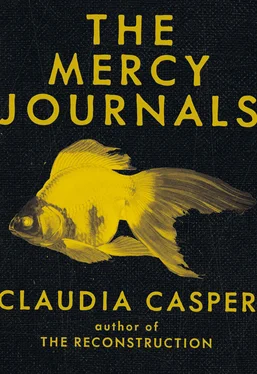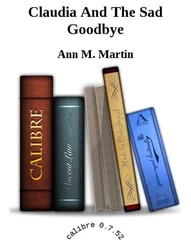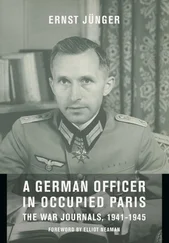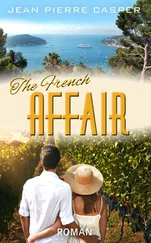The hole Leo had been digging was neither deep nor wide enough for the three of us, so I started to dig. When it was about three feet deep, I lowered myself in and grabbed one fore paw and one hind paw and pulled the cougar toward me. She thumped into the hole on her back. I heaved her onto her side, then climbed out and went for Leo. I lifted his feet, hooked one under each arm and drove forward, pitting my weight against his. I moved him inch by inch. At the graveside I pulled him around so his head would land beside her head and climbed back in. I pulled first his arm, then his leg, alternating until he thumped in beside her. I shoved him closer to her until he lay inside her embrace. Then I placed her forepaw on his upper arm and placed his arm across her belly. Her head rested near his chest just below his chin. I looked down, heart pounding from exertion, and realized I’d left no room for myself in the middle. And that decided it. The worms would have to wait. The grey sky swirled around me. I climbed out and filled the grave.
I threw my things into a dry bag and went to the kitchen to pack some food. Griffin came down. I told him where to lay a stone if he wanted. He cried and asked if I’d be returning. I held his face and kissed his forehead, then gave him the pistol and the cartridge. I told him I thought Leo might have had a weapons cache in the area. It was even possible, I said, that Leo had connections to the resistance and that they might come looking for the weapons. I counselled him to find the cache and get rid of the weapons.
He came with me down to the water. A low-lying fog had oozed down from the hills, and there was a chill in the air. I loaded the hatch, slid the kayak into the water, and climbed in. I paddled out a few strokes, turned the boat around, and yelled back to the shore, Never again! and began to laugh. Never again! I yelled as I turned back out toward the strait and yelled it over and over, laughing maniacally until tears streamed down my cheeks. I paddled away. Eventually the fog absorbed my words. The cold brine of the Georgia Strait trickled down onto my hands.
Now, on this beach, decamped a day’s paddle away, I’ve written my story until this moment.
I am having visions. I know they’re visions. Grandiose visions that I committed some kind of last murder. I understand that my mind is throwing up these visions to make my torment bearable. My mind wants me to survive though my body is not well.
I’ve built a small sweat lodge using a tarp and branches dug into the sand. Every day I build a fire, heat the rocks, transfer them inside, and pour river water over them. If I am to return I must get clean. As clean as possible.
While looking for the right rocks to heat, I found a rock with a smooth surface like a tablet. Every day I chisel a few words on it. They are different than what I write here in the journal. They have a different weight. When I’m finished carving I believe I’ll be ready to travel again.
This morning a cougar walked past me on the beach. I was staring out to sea after a sweat and it walked right past, by the water’s edge. A young male. He looked at me. It was her son, I thought.
I have finished what I was chiselling. I transcribe the words here:
And Allen slew Leo in a field. The earth drank the blood of the one and the tears of the other. I am a man of peace but look at the work of my hands. This is the last murder. A new covenant begins. From this day forward people shall know the murder of one is the murder of all and there is no future in it. I will turn a blind eye no more and I shall weep. My mark is on Allen that everyone may know he is a man and be wary. He will remain among his people until his dying days, a peaceful man of the hearth. Nonetheless whoever harms him will be forgiven sevenfold.
Amid the gentle din of people heading home from work, I lean against a wall and stare up at clouds lightening and darkening, depending on their fullness. A thrumming sounds in my ear. I turn to see the cause and catch a blur in the direction of a late-blooming rosebush near the building’s entrance. Above one of the blooms a green hummingbird hovers, a slash of red at its throat. It plunges its beak into the flower’s centre.
Then I hear the sound, the familiar cadence, the brisk stride, clack, clack, clack. I open my bag and take out a red sandal, which I place upright in the palm of my shaking hand. I stretch my arm out, waiting. Why not? None of us deserves to be here.
I am marked, but I have survived.

Log of Deaths: Canton Number Three, Cascadia, October 27, 2054
Allen Levy Quincy, of a heart attack, age 64. Predeceased by wife Jennifer (née Arcand) in 2030. Mourned by companion Ruby Blades, nephew Griffin (Parker), and great-niece, Anne. The whereabouts of two sons, Luke and Sam, are unknown. Also whereabouts of a brother, Leo Dermid Quincy, is unknown.
Updated, May 8, 2073
Also mourned by son Sam Quincy (Maud), granddaughter Marie (Eric), and great-grandson Smoke. The whereabouts of son Luke Quincy is still unknown. The human remains found on Forgotten Peninsula, Vancouver Island are presumed to be those of Leo Dermid Quincy
Thanks to Michael Baser — everyone should have such a champion — and my fairy god-sister Jamie Lee Curtis. Thanks to my agent Phyllis Wender, whose painstaking perseverance helped make this book what it is, and to her assistant Allison Cohen for work behind the scenes. Thanks to Chris Hennebery for information and proofreading about military structure and weapons, and war photographer Gary Knight for a discussion about killing. Thanks to Thad McIlroy for helping me keep the faith, and Shefa Siegel, who inspired the scene of berries. Thanks to Aislinn Hunter and John Colapinto, comrades in the trenches. Thanks to Anne Giardini for early support, and for excavating the title. Thanks to Sarah Chase, whose generosity in talking about her art as a choreographer provided invaluable research. Thanks to many readers whose literary biofeedback was essential: Betsy Warland, Nancy Richler, Anne Collins, Bill Marchant, Ian MacPherson, Maureen Palmer, Helen Slinger, Nadine Schuurman, Myriam Casper, Sarah Maitland, and Gavin Hollett.
Thanks to everyone at Arsenal Pulp Press — Brian, Susan, Cynara, and Oliver. Making this book with you was “simply the best,” to quote Tina Turner.
I want to acknowledge Hornby Island, British Columbia, whose ample beauty and brilliantly resourceful inhabitants continue to expand me.
Thanks to Samantha Power, Romeo Dallaire, and Gwynne Dyer for their writing about genocide, post-traumatic stress disorder, and climate change, and to all the people marching in the streets, all the people working to turn this ship around.
